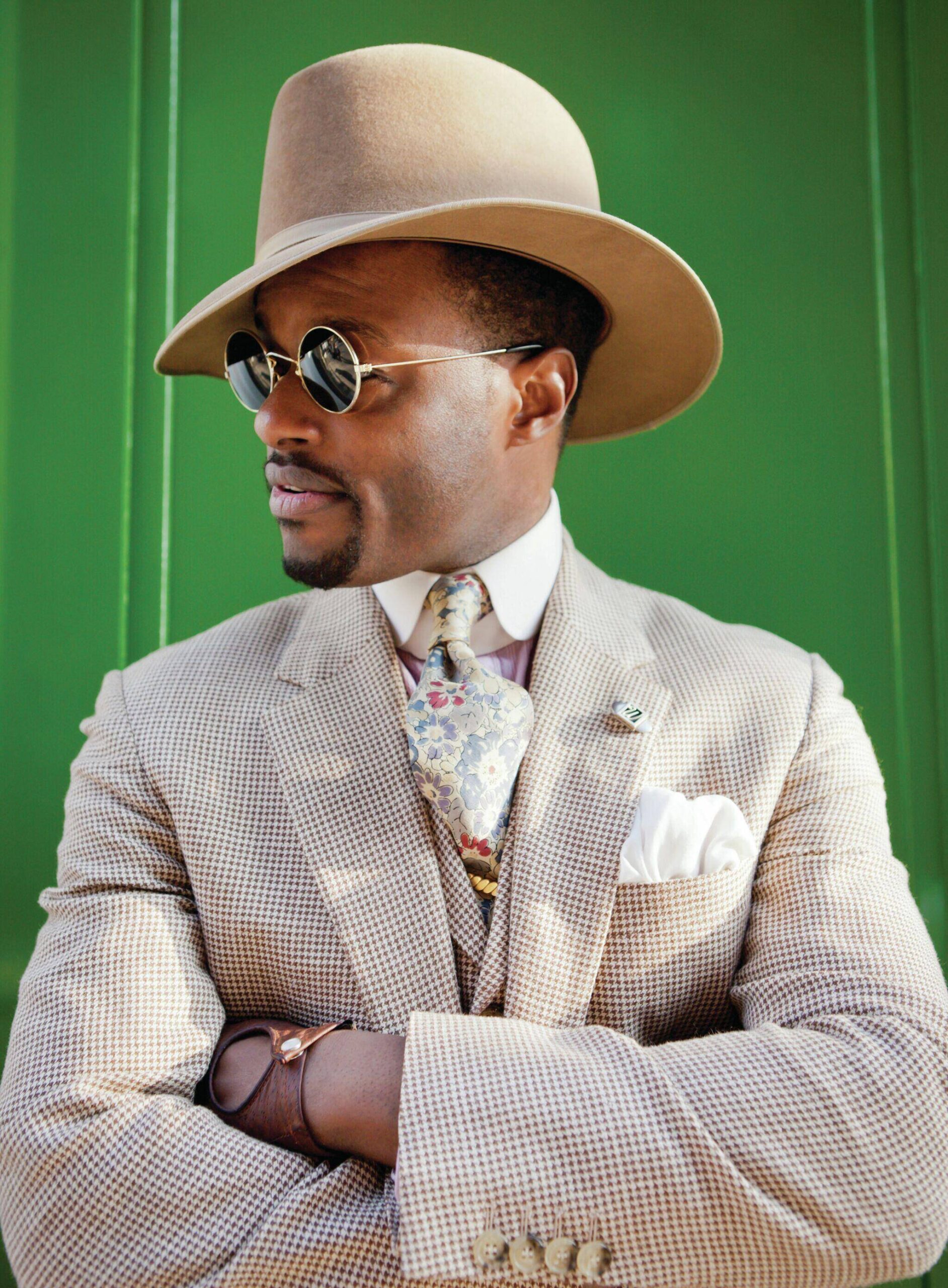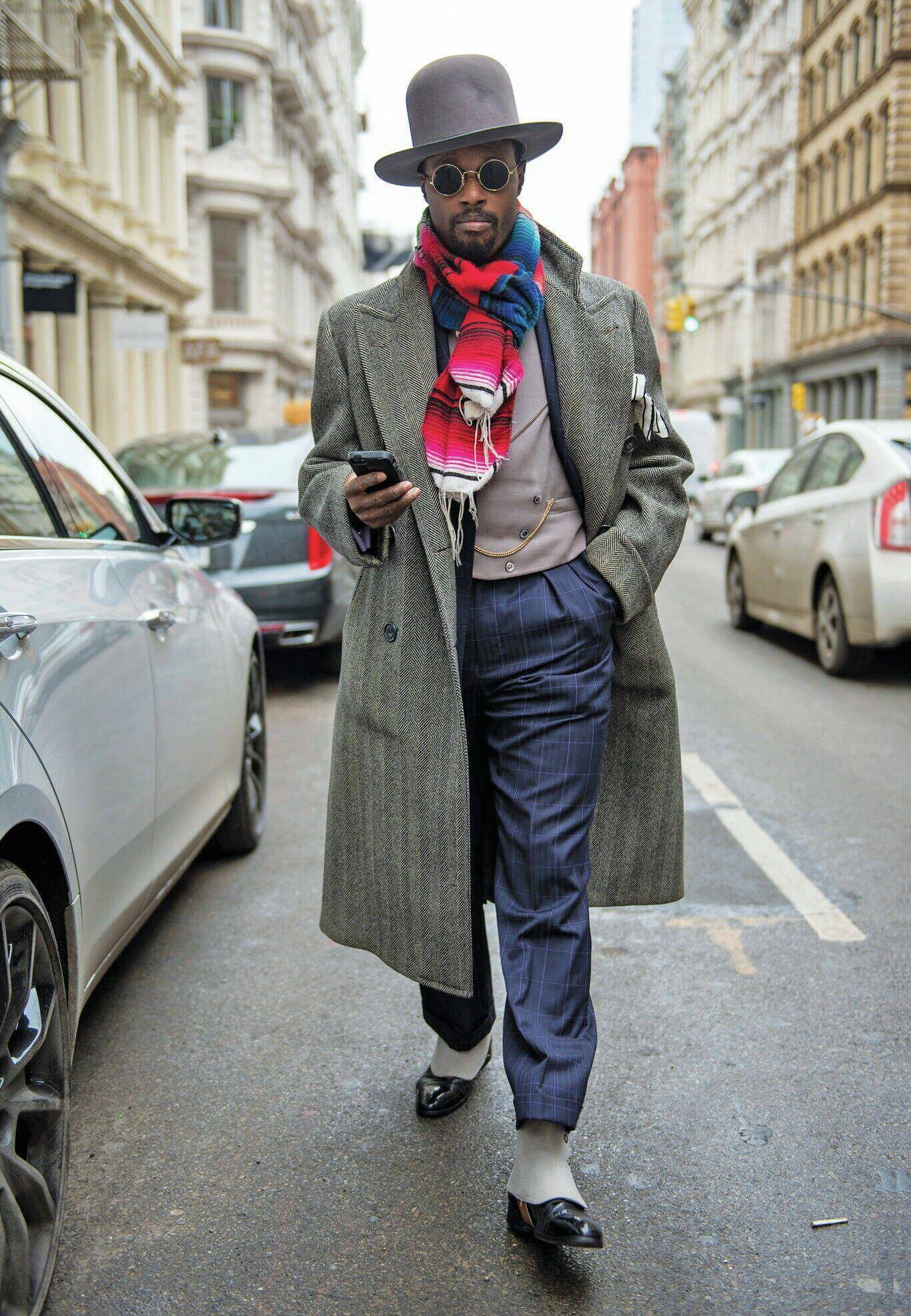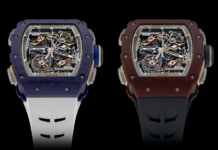For many people, buying second-hand clothes is much more than a fashion statement – it’s a potent way to express your integrity, your ethics and your politics. Tamsin Blanchard talks to the style pioneers who wear their hearts on their sleeves.

Dandy Wellington, the bandleader and vintage-fashion aficionado, proudly wears a badge with the slogan “Vintage Style, Not Vintage Values” on the lapel of his 1940s jacket. In addition to his work as a musician and entertainer, Wellington describes himself as a style activist. “I was born and raised in Harlem, New York City,” he tells me when we met on Zoom, speaking from the dressing room where he records sartorial jaunts through his extensive vintage wardrobe for his brilliant eponymous YouTube series. “I have no choice but to celebrate the great artists who walked these streets and changed lives in America and around the world.” Duke Ellington, Teddy Wilson and Fats Waller are some of the musicians he grew up listening to. “We can’t help but be inspired. Not only by the artistry, but by the story, the style, the things they overcame. And so, as a Black American who loves history, loves the music and loves the style, I can’t help but honour these people – with every tie of the bow tie.”
The vintage community is driven not by nostalgia for past times, but by a yearning for clothes that are made to last
Wellington’s love of vintage tailoring and sartorial codes, not to mention a minor obsession with buttonholes, is certainly not born out of some sense of backward-looking nostalgia for an apple-pie ideal of the past. He is acutely aware of how difficult life was for these pioneers. “We’re not even just talking about inequality, you know,” he says. “In the face of their fame and brilliance, in the face of thousands of records sold, people being able to sing the songs that they wrote back to them, they couldn’t walk in the front door [of a venue]. They couldn’t stay in the same hotel as where they were playing. They had to go to the Black part of town and sleep on someone’s sofa or in someone’s spare room.” So when Wellington is getting dressed in the morning, selecting a truly eye-catching tie and waistcoat combination, and perhaps a jaunty hat and pocket handkerchief to complete the look, this is no mere frivolity, and his spectacles are far from rose-tinted. “To this day, when people say ‘Oh, yeah, we’ll just have the musicians come in the back’, I’m, like, ‘No, we’re not doing that. I’m acutely aware of the history of that practice. And it won’t continue.’”
This viewpoint demonstrates that there is nothing regressive about vintage dressing and illustrates the theme of the Revive and Thrive Village at last year’s and this years Goodwood Revival. The vintage community is global and diverse, often driven not by tone-deaf nostalgia for past times, but by a yearning for clothes that are beautifully crafted and made to last, and a freedom to express your identity away from the conformity of mass-produced style. Increasingly, new generations are embracing old clothes, whether it’s teenagers finding 1990s style at car-boot sales or on Depop, fashionlovers discovering the impact of the industry on the planet and opting to buy less and not buy new, or style leaders deciding that the most creative way to express themselves is by sourcing their clothes anywhere but the high street. Even Love Island has moved on from fast fashion to embrace the world – and sponsorship – of eBay. In 2023 Goodwood is launching two new areas , celebrating iconic and vintage fashion and the heritage crafts that allow us to revive second-hand treasures.

The resale market is big business, and getting bigger by the day, whether it’s a bedroom business or a luxury fashion resale start-up like the recently launched Reluxe, which sells designers cast-offs from the fashion industry’s models and influencers. According to recent research by GlobalData for the US platform ThredUp, the second-hand sector is going to be worth $84 billion by 2030, far outstripping the fast-fashion sector, which will be worth about $40 billion.
But for those dedicated to the art of second-hand dressing, it’s not about business, it’s about style and a sense of identity. Here, we talk to three fashion pioneers for whom not buying new, and looking after the clothes they become custodians of, is as much about politics, ethics and integrity as it is about expressing the very soul of who they are. Find out more
Credit : This story was taken from Goodwood Magazine










